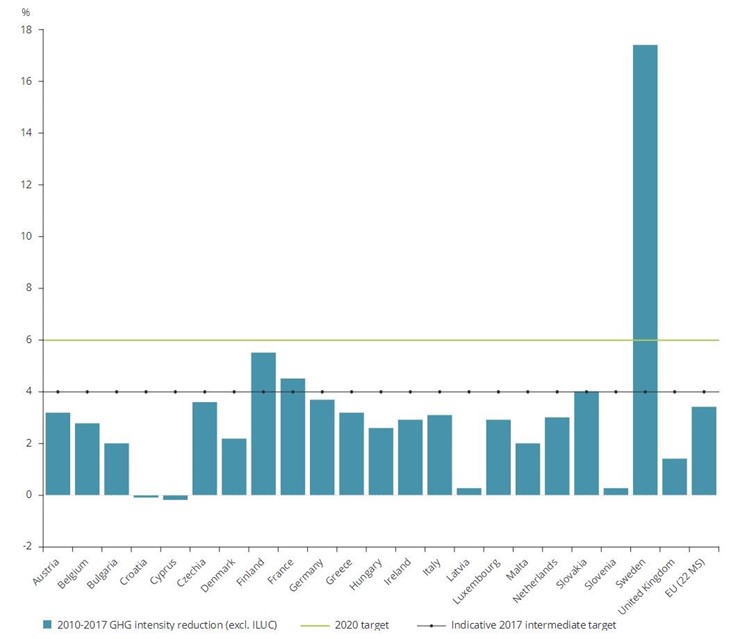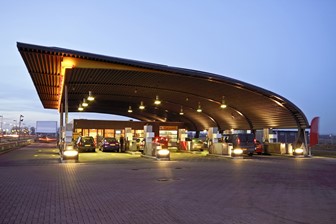Fuel quality failure: New report shows most EU countries need more help reducing emissions
Across the EU, fuel suppliers are not sufficiently reducing the greenhouse-gas intensity of fuels, according to new data from the European Environment Agency. This is yet another signal that as Member States struggle to meet their climate and renewables targets, more of them could take advantage of the EU’s Fuel Quality Directive to promote low-carbon solutions such as renewable ethanol.
The EEA’s latest progress report on the Fuel Quality Directive, as communicated by the European Commission, looks at data from 2017 as reported in 2018 by 22 EU Member States. It shows that while average GHG intensity of fuels is 3.4% lower than it was in 2010, that performance fell short of the 2017 indicative target of 4% and risks not meeting the 2020 binding target of 6%. The projected reduction in 2020 is 4.7% assuming a constant rate.
In fact, only four EU Member States met the 4% indicative level in 2017 and only one – Sweden, where biofuels are a high policy priority – has already exceeded the 6% target. As the EEA report makes clear, an additional 2.6% reduction is needed on average in the EU.
The EEA report confirms there is clearly room for improvement in fuel quality when it comes to petrol. Member States should use the encouragement offered by the Fuel Quality Directive to lower emissions by rolling out E10, a petrol blend containing up to 10% ethanol that works in today’s car fleet.
Renewable ethanol produced by ePURE members reduces emissions by more than 71% on average compared to fossil petrol. In 2017, 71.9% of petrol fuel sold in the EU had up to 5% ethanol content by volume, and 15.7% had up to 10 % ethanol content. Some countries, most recently the Netherlands, have switched to E10, but more could and should follow suit.
As the EU increases its ambitions for emissions reduction via the European Commission’s promised Green Deal, it should leverage all the tools it has available. That includes the Fuel Quality Directive, which goes beyond what kind of cars people drive and calls for improving the fuels people put in them. This approach would make the benefits of the Green Deal start paying off in the existing car fleet, and also in the vehicles that will dominate the market for decades to come.
Reductions in GHG intensity of fuels achieved by EU fuel suppliers in Member States, 2010-2017

Source: EEA
